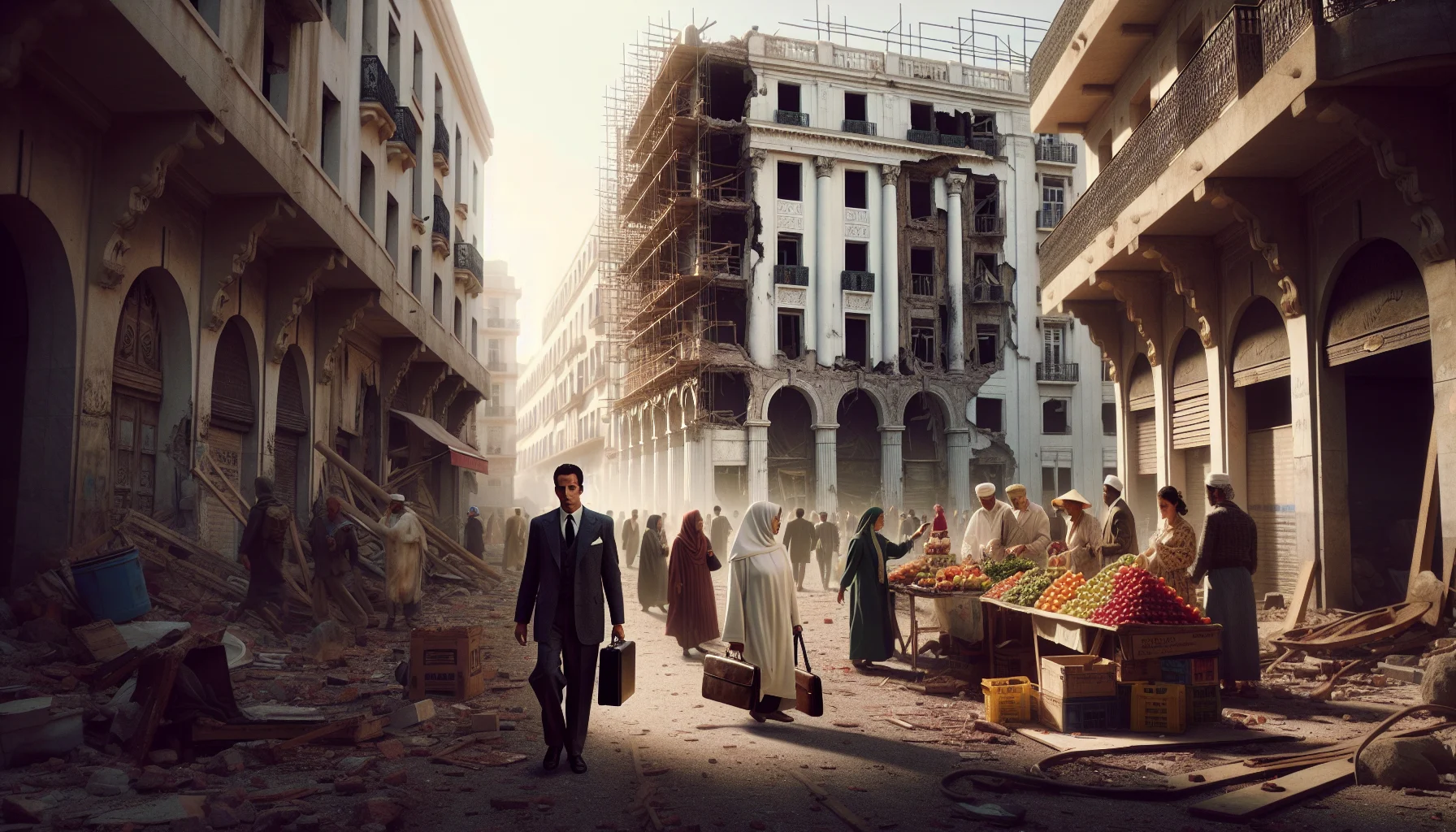
The 2003 Casablanca Bombings
by: The Calamity Calendar Team
May 16, 2003
The Night the Lights Dimmed in Casablanca
On the evening of May 16, 2003, life in Casablanca, Morocco's bustling economic heart, was disrupted not by the shuffle of tourists or the vibrant hum of its marketplaces, but by the abrupt and brutal sounds of destruction. This was a night that carved a scar into the city’s vibrant streets — one etched with the memory of chaos and tragedy, forever shadowing the lively undertones of this North African metropolis.
Rising Shadows Against a Post-9/11 World
In the years leading up to that moment, a different kind of unrest was brewing under the soothing mask of Casablanca's cosmopolitan appeal. Globally, the world was still reeling from the devastating attacks of September 11, 2001, which changed the landscape of terrorism. Beneath Casablanca’s polished exterior, a sense of disenfranchisement simmered among its youth. In particular, the neglected alleyways of Sidi Moumen — a shantytown packed with dreams deferred — were becoming a fertile ground for radical ideologies.
These young bombers, tied to the extremist ideology of Salafia Jihadia, did not emerge from nowhere. Isolated by poverty and unemployment, they found hope in the dangerous promises of radical leaders, promises that whispered sweet salvation amid the crushing weight of their daily struggles.
A Shattering Silence
As the clock struck 9:30 PM, the serene Casablanca evening was shattered. Fourteen suicide bombers moved with choreographed precision, each a piece of a deadly puzzle laying before the city. Five explosions rang out in a symphony of destruction.
First, Casa de España — a Spanish restaurant animated with the laughter of a birthday celebration — suddenly found itself at the heart of unimaginable horror. Joyous cheers were replaced by screams as the celebration turned into bated searches for loved ones beneath scattered debris.
Next came the darkened halls of the Jewish community center. Thankfully closed at the time, it provided only shadow-targeted destruction. The Hotel Farah, another target, was popular among tourists, but on this night it became infamous for the chaos its floors would witness.
Thanks for subscribing!
The Jewish cemetery, mere stones thrown and now shaken, and an Italian restaurant, which faced similar fates, emerged that night not as landmarks, but as reminders of how swiftly peace can unravel.
Picking Up the Pieces
Thirty-three souls were lost amidst the wreckage, and more than a hundred others counted their blessings amidst their injuries. Each life lost reverberated further than the city itself, sending shockwaves across the world. The once lively bustle of Casablanca now moved with hesitance, its rhythm a mere echo of its former vibrancy. Amongst the rubble and the resonating cries, the daunting task of healing began, but not without the price of lost innocence.
Economically, the effects of the bombings scalded deeper than immediately visible scars. Morocco's tourism, a lifeblood for the economy, faltered under the weight of fear. Yet, amid the bleakness, a resolve began to stir; wounds and worry bound communities more fiercely than before, sparking a resolve to forge ahead.
A Nation’s Response
In the aftermath, Casablanca became the epicenter of an intense counter-terrorism campaign. Moroccan authorities launched an extensive operation, detaining scores connected to extremist networks. The message was clear: terrorism would find no sanctuary here.
The urgency of response saw swift reformation of counter-terrorism policies and the weaving of judicial safety nets to deal with such threats judiciously. However, law enforcement alone wasn't enough. Realizing this, the Moroccan government endeavored to mend the social fabric by targeting the root causes of radicalization — open wounds left unchecked in places like Sidi Moumen.
Programs focused on empowerment through education, economic upliftment, and deradicalization campaigns sought to offer tangible hope where once there was suspicion and scarcity.
Reflections and Rebuilding
Years on, the tales of that dark night continue to hold sway over scholars and policymakers alike, prompting reflection and research into the lives led by those young men before their fatal decisions.
Their stories are interlaced with the psychology of despair and extremism, pressing home the imperative to address critical socio-economic divides. These lessons remain crucial in today’s efforts to stem the tide of global terrorism.
Resilience Amidst Ruins
Today, if you strolled through Casablanca’s streets, the echoes of that night still find whispers within the bustling crowd. Yet, in the repaired facades and bustling corners, you witness a resilience unmistakably Moroccan — a spirit bent but unbroken, thriving amidst its scars, seeking understanding and offering a quiet testament to hope renewed.
Such is the legacy of that fateful night in May. The city, with its deep echoes of the past, strides forward, rebuilding, reimagining, and reaffirming its right to dream.
Stay in the Loop!
Become a Calamity Insider and get exclusive Calamity Calendar updates delivered straight to your inbox.
Thanks! You're now subscribed.